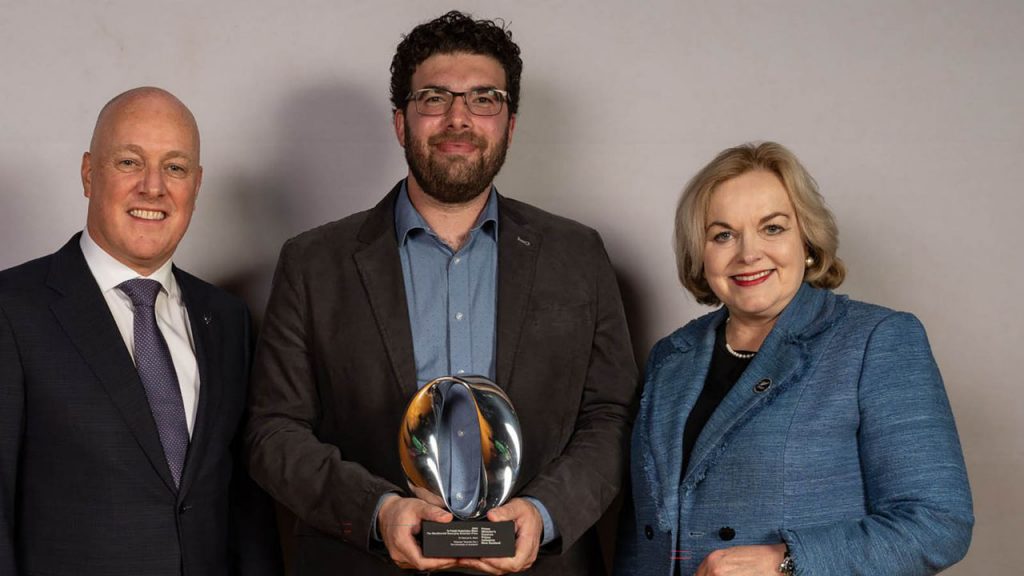Science
Cognitive Scientist Samuel Mehr Critiques New Zealand’s Science Funding

Cognitive scientist Samuel Mehr has expressed serious concerns about New Zealand’s scientific landscape, attributing a potential brain drain to what he describes as a “laughably pathetic” funding system. Following his recognition with the country’s top science prize in 2022, Mehr argues that without significant changes to the funding structure, the nation risks losing its most talented researchers to overseas opportunities.
Over the past decade, New Zealand has seen a decline in its reputation as a hub for scientific innovation. Mehr pointed out that recent restructures within the funding system, coupled with budget cuts, have only compounded the issue. He stated that these changes have added “insult to injury,” making it increasingly difficult for researchers to secure the financial backing necessary for their work.
Funding Challenges and Research Impact
According to Mehr, the current funding model is severely limiting the potential for groundbreaking research. He noted that many of New Zealand’s leading scientists are considering relocating to countries with more robust support systems for research and development. The cognitive scientist emphasized that the existing budget does not reflect the value of scientific work or its contributions to society.
In his remarks, Mehr highlighted that the country has been losing talented individuals who are essential for fostering innovation. He believes that unless the government acknowledges the critical role of science in driving economic growth and societal advancement, New Zealand will continue to face challenges in attracting and retaining top-tier talent.
The implications of this brain drain extend beyond individual researchers; they affect the broader scientific community and the nation’s progress in various fields. Without sufficient investment in research, New Zealand risks falling behind in global scientific standings.
Calls for Change and Future Prospects
Mehr’s comments come at a pivotal time as policymakers are under increasing pressure to reassess the nation’s approach to science funding. Advocates for science argue that a comprehensive review of the budget is essential to ensure that funds are allocated appropriately and effectively. They contend that increased investment could not only prevent the exodus of talent but also stimulate local innovation and attract international researchers to New Zealand.
The cognitive scientist’s warnings resonate with many in the academic community who share his concerns about the current trajectory of science funding in the country. As New Zealand strives to reclaim its position as a leader in innovation, the need for a strategic overhaul of its funding system has never been clearer.
In conclusion, the future of New Zealand’s scientific landscape hinges on the government’s willingness to prioritize research funding. As Samuel Mehr has articulated, without meaningful changes, the nation risks losing its brightest minds and the potential for significant advancements in science and technology.
-

 World3 months ago
World3 months agoTest Your Knowledge: Take the Herald’s Afternoon Quiz Today
-

 Sports3 months ago
Sports3 months agoPM Faces Backlash from Fans During Netball Trophy Ceremony
-

 Lifestyle3 months ago
Lifestyle3 months agoDunedin Designers Win Top Award at Hokonui Fashion Event
-

 Sports3 months ago
Sports3 months agoLiam Lawson Launches New Era for Racing Bulls with Strong Start
-

 Lifestyle3 months ago
Lifestyle3 months agoDisney Fan Reveals Dress Code Tips for Park Visitors
-

 Health3 months ago
Health3 months agoWalking Faster Offers Major Health Benefits for Older Adults
-

 World3 months ago
World3 months agoCoalition Forms to Preserve Māori Wards in Hawke’s Bay
-

 Politics3 months ago
Politics3 months agoScots Rally with Humor and Music to Protest Trump’s Visit
-

 Top Stories3 months ago
Top Stories3 months agoUK and India Finalize Trade Deal to Boost Economic Ties
-

 World3 months ago
World3 months agoHuntly Begins Water Pipe Flushing to Resolve Brown Water Issue
-

 Entertainment3 months ago
Entertainment3 months agoExperience the Excitement of ‘Chief of War’ in Oʻahu
-

 Science3 months ago
Science3 months agoNew Interactive Map Reveals Wairarapa Valley’s Geological Secrets









